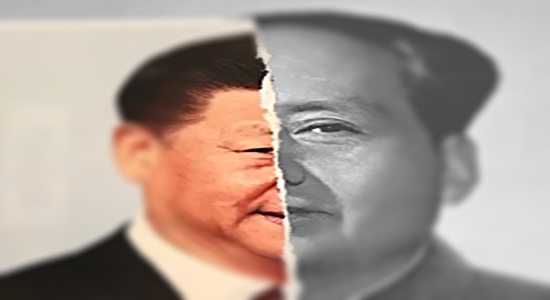
If you live in China, what are all the ways that the Chinese Communist Party tells you what’s what?
In 2007, a lengthy article by David Shambaugh, “China’s Propaganda System: Institutions, Processes and Efficacy,” appeared in the January 2007 issue of The China Journal. Some of the insights, new or learned from previous studies:
● In developing their own propaganda, the Chinese communists studied the methods of propaganda of other totalitarian states, like those of the Soviet and Nazi states, as well as of the imperial and Nationalist Chinese regimes.
● Propaganda and indoctrination were hallmarks of the PRC regime under Mao (1949-1976), and Mao was a master propagandist.
● The tools and techniques of thought control practiced under Mao included mass mobilization campaigns, study groups, ideological monitors, imprisoning people to brainwash them, control of what was taught in the schools, domination of broadcast media, use of a nationwide and ubiquitous system of loudspeakers, deployment of propaganda teams to indoctrinate targeted groups, and “other methods.”
● Although the efficacy of state propaganda has declined in China, in part because of commercial forces unleashed by market reform, “the CCP propaganda apparatus has been revitalized in recent years and remains fully capable of controlling the content of information that reaches the public when it decides to do so. Hence, the issue—like so much else concerning the government in China today—is really one of selective enforcement.”
● Shambaugh writes that “virtually every conceivable medium which transmits and conveys information to the people of China falls under the bureaucratic purview of the CCP Propaganda Department” (CCPPD). The explosion of sources of information has made it “simply impossible for the CCPPD and other censorship authorities to police all of these realms effectively, [but] it continues to have the capacity to censor and to crack down when and where it sees fit.”
● CCP propaganda efforts are aided by a general but not entirely passive self-censorship. Creative intellectuals like journalists and movie makers probe the limits of the propaganda state even as they abide by those limits.
● The flip side of the censorship coin is “proactive propaganda” by the CCPPD, the purposeful spreading of the ideas and information that the Party thinks will foster a “socialist spiritual civilization” or “harmonious [submissive] society.”
Much of Shambaugh’s article is devoted to detailing by whom and how the propaganda is conducted, the people and departments and ministries and how it’s all structured and how the structures have evolved. This is the part of the study that probably most needs updating in light of changes over the past fifteen years.
The author concludes: “The ultimate question remains whether the Party-state can continue to maintain its ideational influence effectively in society when its guiding ideology is a mish-mash of slogans that few understand or believe, and when the institutional mechanisms for controlling and disseminating information are growing weaker over time. When the message becomes unbelievable, it is only a matter of time before the messenger is questioned.”
Here one must demur. The CCP message can’t “become” unbelievable. It has always been unbelievable, at least if “belief” is a state of mind that results from fact-focused cognition rather than from fear-motivated or ambition-motivated evasion and pretense. But the Chinese state doesn’t need everybody to accept its nonsensical exhortations as a matter of considered conviction as long as enough people sort of believe or pretend to believe them, repeat them, and obey.
Unexplored by Shambaugh is the extent to which the Chinese Communist Party’s international propaganda, doubtless more energetic in 2023 than it when he was writing in 2007, is abetted by so many personages in other lands—reporters, athletes, actors, moviemakers, tycoons, politicians. These are people who are not typically at risk of being imprisoned and tortured if they refuse to appease the Chinese government but who do so anyway.





